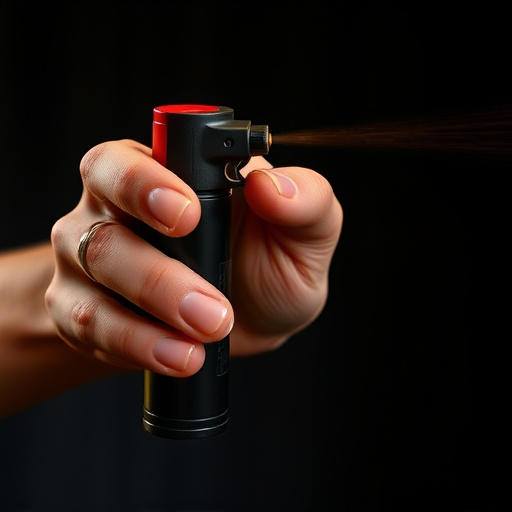Pepper spray laws vary widely across the US, with states setting rules on usage, possession, and sale based on capsaicin concentration, permitted uses, age restrictions, and labeling. Law enforcement follows strict protocols for responsible usage, while citizens need to stay informed about local regulations to avoid legal issues, misuse, and environmental contamination.
“Uncover the power and complexities of police-grade inflammatory pepper spray compounds, a versatile tool in law enforcement. This comprehensive guide explores the intricate composition and varying strengths of these agents, shedding light on their effectiveness. We delve into the legal landscape surrounding pepper spray use, examining state-by-state regulations to understand the diverse rules and restrictions. Furthermore, safety precautions and responsible use practices are highlighted, emphasizing the importance of guidelines in ensuring public and officer well-being.”
- Understanding Pepper Spray Composition and Strength
- Pepper Spray Laws and Regulations by State
- Safety Precautions and Responsible Use of Pepper Spray
Understanding Pepper Spray Composition and Strength
Pepper spray, a powerful law enforcement tool, is designed to incapacitate individuals temporarily through irritation and pain. Understanding its composition and strength is crucial when discussing its effectiveness and the associated Pepper Spray Laws by State. These sprays contain capsaicin, the active ingredient derived from chili peppers, which is usually concentrated in a solvent like water or alcohol. The concentration of capsaicin determines the spray’s potency; higher concentrations provide more intense effects but also raise concerns about safety.
Different states have varying regulations regarding pepper spray use, possession, and sale. These laws consider factors such as permitted uses (self-defense, law enforcement), minimum age restrictions, and labeling requirements. Staying informed about local Pepper Spray Laws by State is essential for both citizens and law enforcement agencies to ensure responsible usage and mitigate potential risks.
Pepper Spray Laws and Regulations by State
In the United States, pepper spray laws vary significantly from state to state. Understanding these regulations is crucial for both law enforcement agencies and citizens alike. Some states have strict rules governing the use of pepper spray, including requirements for training, storage, and reporting. For instance, California mandates that pepper spray can only be used when necessary for self-defense or to control a suspect, with detailed documentation of its usage. In contrast, other states have more lenient laws, allowing law enforcement officers to employ pepper spray as a less-lethal force option without stringent restrictions.
When it comes to acquiring and carrying pepper spray, states also have different rules. Some permit individuals to possess pepper spray for self-defense purposes, while others restrict its use to licensed professionals like security guards or law enforcement officers. Additionally, there are variations in the permitted strengths and types of pepper spray, with some states banning certain compounds due to health and safety concerns. Staying informed about Pepper Spray Laws by State is essential to ensure compliance and promote public safety.
Safety Precautions and Responsible Use of Pepper Spray
The responsible use of pepper spray is paramount, especially considering its potent nature and potential impact on users and bystanders. It’s crucial to understand that pepper spray laws vary significantly from state to state, underscoring the importance of familiarizing yourself with local regulations before acquiring or employing such a compound. In many jurisdictions, law enforcement agencies are the primary authorized users, following strict protocols for its deployment to ensure public safety.
When in possession of pepper spray, whether for personal protection or as part of a legal collection, it’s essential to store it securely and out of reach of children and unauthorized individuals. Additionally, regular maintenance and proper disposal methods should be followed to prevent contamination and reduce environmental impact. Always bear in mind the potential consequences of misuse, including legal repercussions, and ensure that its use is consistent with the law and ethical guidelines.
In understanding the composition and strength of pepper spray, as well as navigating the varying Pepper Spray Laws by State, it’s clear that responsible use and adherence to safety precautions are paramount. By being aware of local regulations and adopting safe handling practices, individuals can ensure the effective and legal deployment of pepper spray for personal protection.
